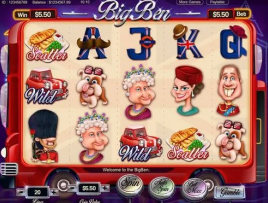
years | teen patti delight | Updated: 2024-11-27 23:54:19

PachiPachi is a term that originated from Japanese culture, often associated with the sound and experience of clapping or snapping fingers. It has evolved into an enjoyable activity that incorporates rhythm, energy, and collaboration among participants. The concept has transcended its initial meaning and is now celebrated in various forms, including games, performances, and social gatherings.
## 2. The Cultural Significance of PachiPachi ### 2.1 Roots in Japanese Social PracticesThe origins of PachiPachi can be traced back to traditional Japanese ceremonies where clapping was believed to ward off evil spirits. The act of engaging in synchronized claps created a communal bond, fostering a sense of togetherness among participants. Over time, these practices have woven themselves into everyday life, influencing festivals, rituals, and communal celebrations.
### 2.2 Contemporary AdaptationsIn modern times, the essence of PachiPachi has been adopted by various art forms, social events, and even team-building exercises. The rhythmic clapping has found its place in dance performances, creating a synergy between movement and sound. In games, PachiPachi introduces an element of fun and competition, encouraging players to engage and interact dynamically.
## 3. How to Engage with PachiPachi ### 3.1 Joining a CommunityTo experience PachiPachi fully, one can start by joining local groups or online communities dedicated to this activity. These platforms provide opportunities for both beginners and seasoned participants to share ideas, techniques, and experiences. Engaging with like-minded individuals enhances the enjoyment and fosters a supportive environment.
### 3.2 Participating in EventsVarious events celebrate PachiPachi, ranging from local festivals to international gatherings. Participating in such events not only enriches one’s understanding of the culture but also allows individuals to witness the joy and energy that PachiPachi brings. Many events feature workshops, performances, and competitions that highlight the diverse ways people engage with this unique concept.
## 4. The Benefits of PachiPachi ### 4.1 Building Community BondsOne of the primary benefits of participating in PachiPachi activities is the development of strong community bonds. The act of synchronizing claps or movements creates a shared experience that fosters camaraderie. Participants often share personal stories, laughter, and encouragement, reinforcing social ties.
### 4.2 Boosting Mental HealthEngaging in PachiPachi has been found to alleviate stress and enhance mood. The physical act of clapping releases endorphins, promoting feelings of happiness. Additionally, the collective nature of PachiPachi allows for shared joy, creating a supportive atmosphere that uplifts participants’ spirits.
## ConclusionPachiPachi is more than just a rhythmic practice; it encapsulates cultural heritage, community connection, and personal well-being. As interest in PachiPachi continues to rise, it invites individuals from all walks of life to partake in this joyful celebration of sound and movement. Whether through dance, games, or community events, PachiPachi offers a unique and fulfilling way to connect with others and embrace the vitality of shared experiences.
--- _This article presents an overview of PachiPachi, exploring its roots, contemporary adaptations, and community engagement strategies while emphasizing its cultural significance and personal benefits._ **Word Count: 590**
